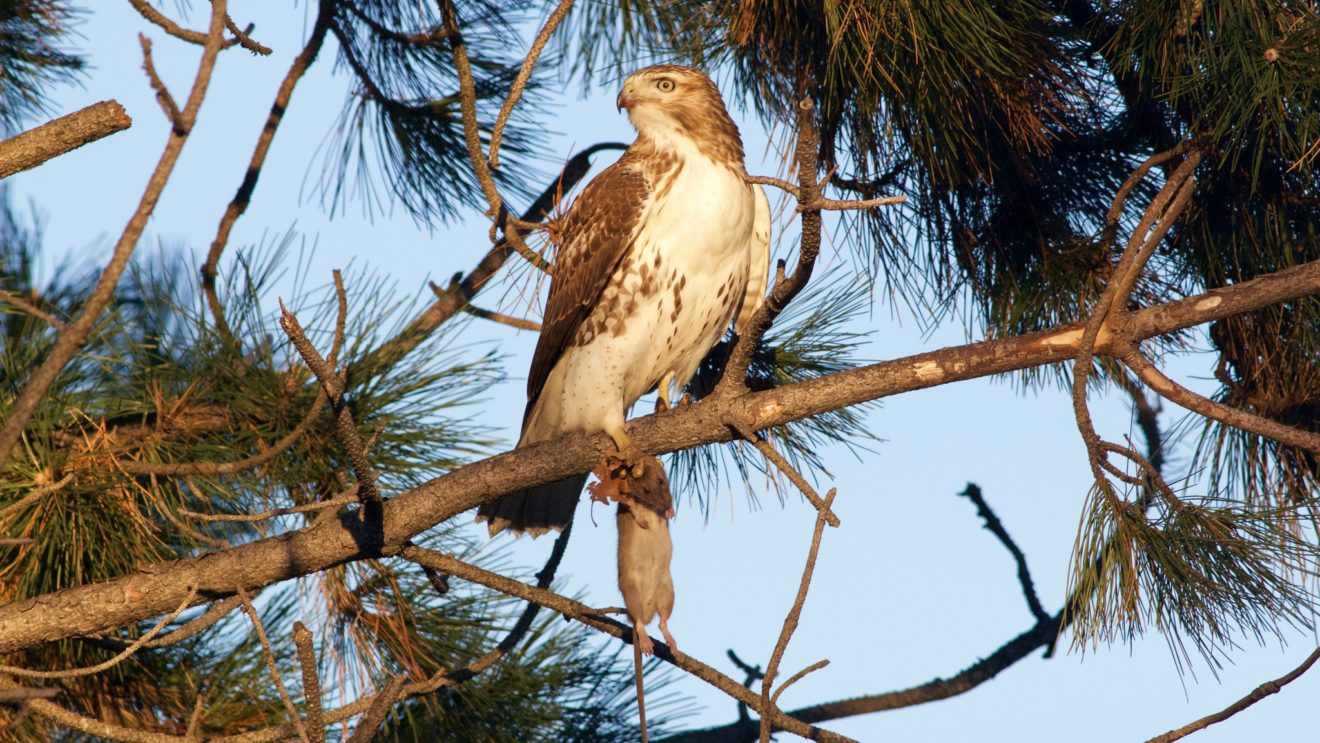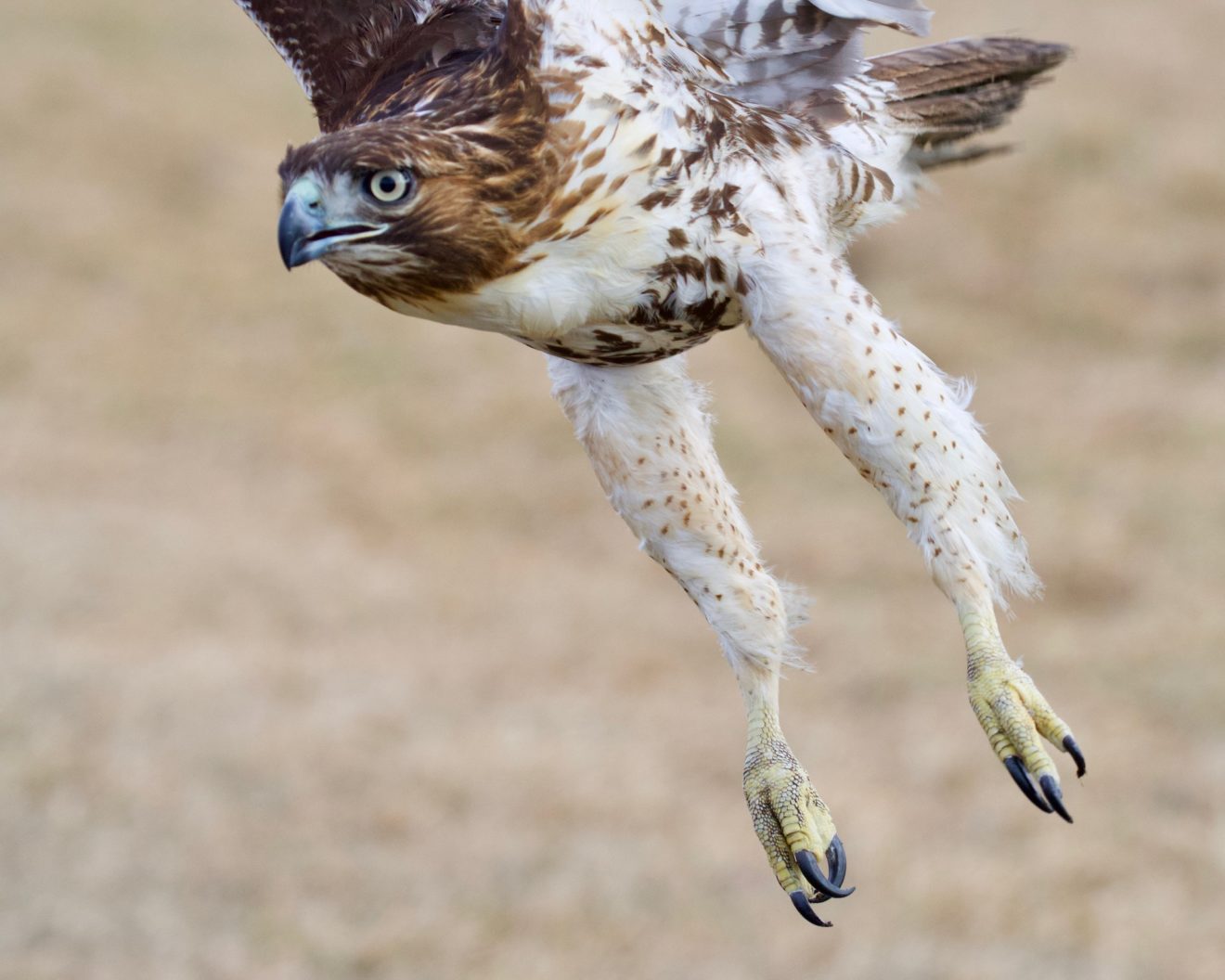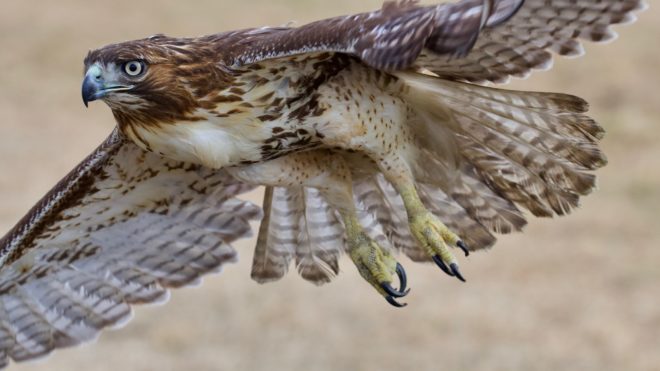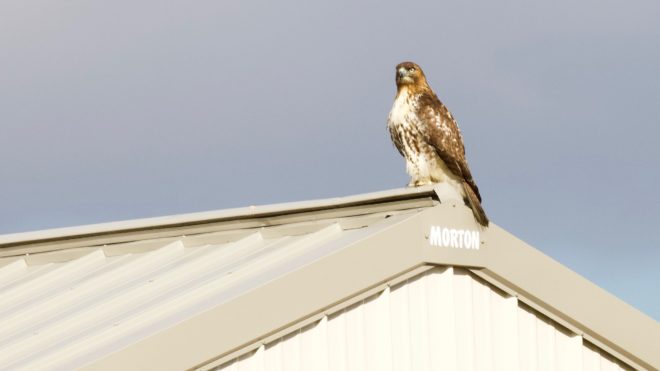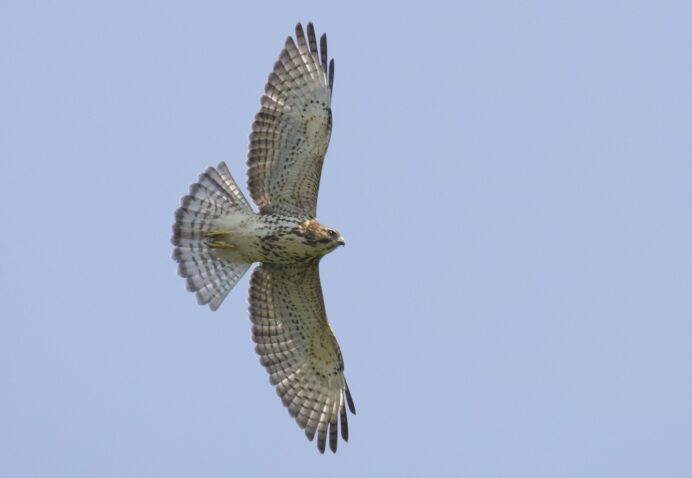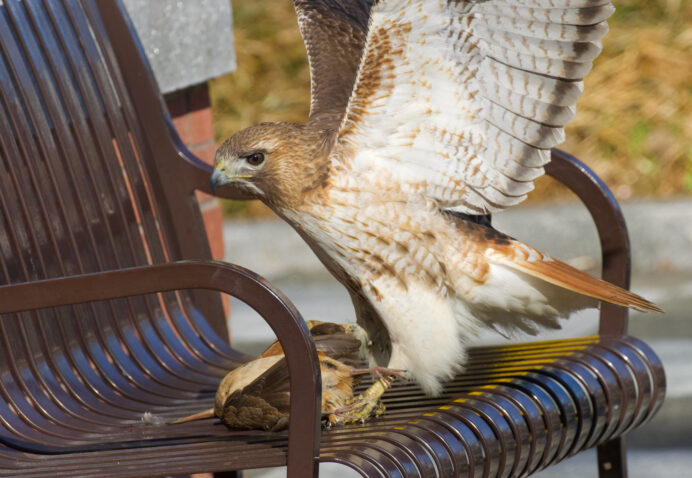Raptors and Rat Poison are a Deadly Combination
The conflict between raptors and rat poison has been an issue that I’ve been following for several years now. Rodenticide poisons not only kill their intended target; they also travel throughout the ecosystem, and end up killing unintended victims. The predators who hunt rats are at extreme risk from being poisoned themselves, as the toxins cumulatively build up in the bodies of predators. The use of industrial rodenticides is generally unchecked at both the local and federal level. Ultimately, rat poison is a major, significant factor in unnecessary hawk deaths all across the United States.
Juvenile Red-tailed Hawk Rescued from Rodenticide Poison
Here’s a rare happy ending of a story. A friend of mine in East Cambridge found a disoriented juvenile Red-tailed Hawk in December that he was able to capture and bring to Tufts Wildlife Clinic in Grafton.
Here’s what they found: “Upon examination, veterinarians found blood in its mouth and a wound on a digit on its left foot. The hawk was also very quiet, and the lining of its mouth appeared very pale. These symptoms, in addition to a low red blood cell count, were consistent with anticoagulant rodenticide toxicosis, so veterinarians administered fluids, pain medication and vitamin K, which is the antidote for anticoagulant rodenticides. The wound on the foot was found to have been a chronic injury, and when the hawk’s condition had improved, the wound was cleaned, sutured, and bandaged. As the hawk’s condition continued to improve over the course of treatment, veterinarians were able to move it to a small flight cage for rehabilitation, conditioning and monitoring. It was moved to a larger flight cage on January 24, 2020 where veterinarians observed normal flight and continued improvement in conditioning. The hawk was cleared for release on February 2, 2020.”
Release of a Recovered Raptor
I was invited to observe the release of the hawk and captured a few images. Thank you to the dedicated team out at Tufts Wildlife Clinic for your selfless work. You serve as a great example of the impact that ordinary people can have in the face of the challenges that raptors deal with.
To learn more about Raptors and Rodenticide Poison, please check out https://www.raptorsarethesolution.org/
To support Tufts Wildlife Clinic, please check out https://wildlife.tufts.edu/donate/
